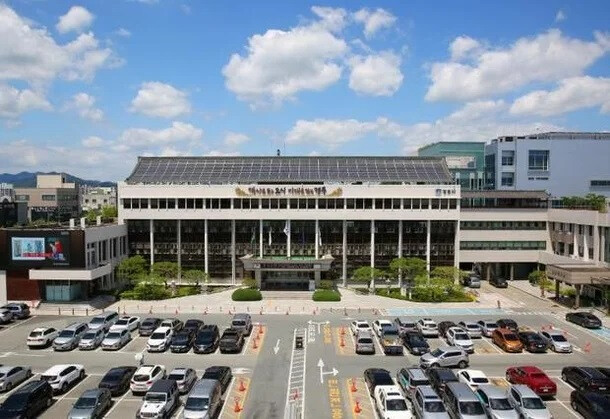
Gyeongju City, South Korea – Starting June 23rd, Gyeongju City will begin offering special commemorative gifts to couples registering their marriages. This initiative aims to celebrate new beginnings and encourage stable family life within the city.
To be eligible for the gifts, at least one spouse must have their resident registration or registered base address in Gyeongju City at the time of marriage registration. Newlyweds will have the option to choose one gift from a selection that includes stick honey, couple tumblers, or a pair of ceramic cups.
In a thoughtful move to include those who have recently tied the knot, the program will also retroactively apply to couples who registered their marriages on or after January 1, 2024. However, eligible couples wishing to claim their gifts must visit the same office where their marriage registration was originally submitted.
Beyond the commemorative gifts, Gyeongju City has also set up a marriage registration photo zone. This popular feature allows couples to capture their special moment, with the city providing a service to send the commemorative photos directly to their mobile phones, significantly enhancing the overall experience for citizens.
An official from Gyeongju City conveyed the sentiment behind the initiative to Dailysight Economy TV, stating, "We prepared these gifts to celebrate the first step towards building a family and to offer our warm support. We hope that many couples will settle stably in Gyeongju and build happy families in the future."
Broader Context of Municipal Support for Newlyweds in South Korea
Gyeongju City's initiative is part of a growing trend among local governments in South Korea to provide various forms of support and incentives to newlyweds and young families. Facing demographic challenges such as a declining birthrate and an aging population, many municipalities are actively seeking ways to encourage marriage and childbirth, and to foster environments conducive to family growth.
These programs often vary widely depending on the specific city or province, but commonly include:
Financial Subsidies: Some cities offer cash incentives for marriage or childbirth, often disbursed over several years. These subsidies are designed to alleviate the financial burden of starting a family, from housing costs to childcare expenses.
Housing Support: Given the high cost of housing in South Korea, many local governments provide preferential access to public housing, low-interest housing loans, or rental subsidies for newlyweds. This aims to help couples secure stable living arrangements.
Childcare and Educational Support: To encourage couples to have children, municipalities frequently offer expanded childcare services, reduced tuition fees for local kindergartens, or educational grants. Some even provide "childcare allowances" directly to parents.
Healthcare Benefits: Programs might include free health check-ups for pregnant women, reduced costs for prenatal care, or support for postpartum recovery.
Community Integration Programs: Beyond material benefits, some cities organize events and programs designed to help new families integrate into the local community, offering networking opportunities and information on available resources.
"Marriage-Friendly" Infrastructure: This can involve creating more family-friendly public spaces, improving public transportation access to family-centric facilities, and promoting a general atmosphere that values and supports family life.
These municipal efforts reflect a national recognition of the importance of robust family units for societal well-being and future prosperity. While the direct impact of individual programs like Gyeongju's gift-giving on overall demographic trends may be modest, they collectively contribute to creating a supportive environment for couples embarking on married life. The symbolic gesture of a congratulatory gift, coupled with practical amenities like a photo zone, serves to acknowledge and celebrate these significant life milestones, making the administrative process feel more personal and celebratory. This human touch is often as valuable as tangible benefits in fostering a sense of community and belonging. The ongoing commitment from local governments to invest in programs that bolster family formation underscores a proactive approach to addressing societal challenges and building a more resilient future.
[Copyright (c) Global Economic Times. All Rights Reserved.]






























